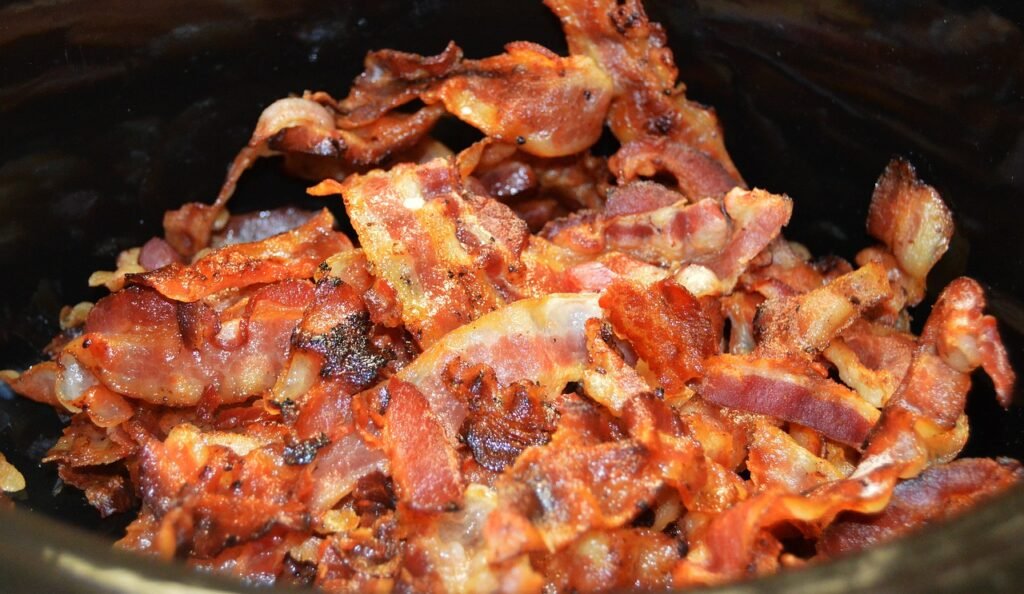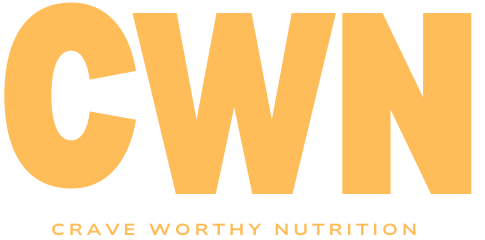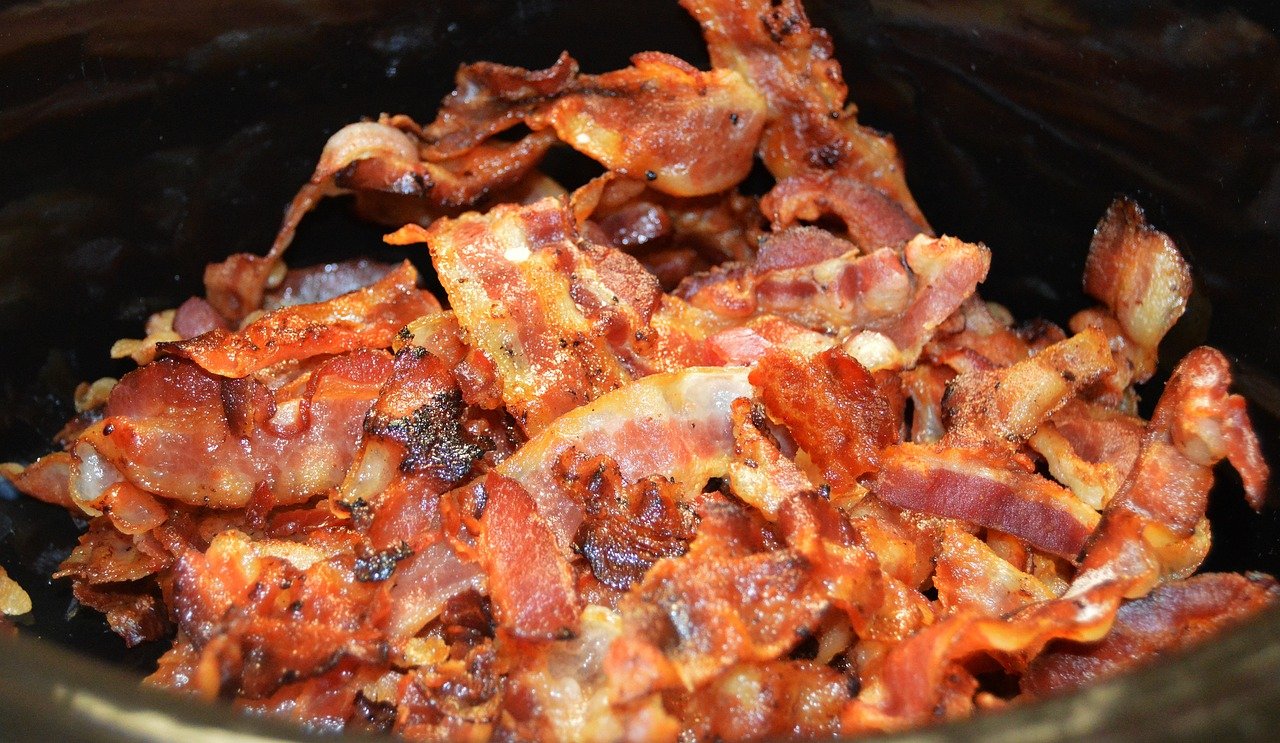
Discover the truth about the carbs in bacon and why it might just be the perfect addition to your low-carb or keto diet.
Bacon, a staple in the realm of beloved breakfast items, captivates many with its crispy, savory flavor.
Despite its reputation for high fat content, those adhering to a low-carb or keto lifestyle may find bacon to be an unexpectedly suitable choice.
Let’s uncover the facts that might just change your perspective on indulging in bacon.
When it comes to popular breakfast foods, bacon is often at the top of the list.
Its crispy and savory taste makes it a favorite among many.
But what if we told you that the truth about carbs in bacon may surprise you?
In this blog post, we will dive into the world of bacon and uncover the surprising truth about its carb content. Get ready to sizzle your taste buds and learn something new about this beloved breakfast staple.
Understanding Carbohydrates and Their Nutritional Role
Carbohydrates are a fundamental component of our diet and play a vital role in providing energy for our bodies. They are one of the three macronutrients, alongside protein and fat, that are necessary for maintaining a healthy and balanced diet.
Carbohydrates are made up of sugar molecules, which can be further categorized into two types: simple carbohydrates and complex carbohydrates.
Simple carbohydrates, also known as sugars, are found in foods such as fruits, milk, and sweets. They are easily broken down by the body and quickly provide energy.
Complex carbohydrates take longer to break down, providing a sustained release of energy.
Carbohydrates are essential for a variety of bodily functions.

They are the primary source of energy for our brains and muscles, enabling us to think, move, and perform daily activities. In addition to energy production, carbohydrates also play a crucial role in supporting our digestive health.
They provide fiber, which aids in digestion and promotes a healthy gut.
The nutritional role of carbohydrates goes beyond energy production. They also contribute to our overall health and well-being. Carbohydrates contain essential vitamins and minerals that are necessary for various bodily functions.
They provide vitamin C, vitamin B, and folate, which are important for immune function, metabolism, and cell growth.
Carbohydrates can sometimes get a bad reputation, particularly among those following low-carb or keto diets. These diets often restrict carbohydrate intake in order to promote weight loss or control blood sugar levels.
While it’s true that certain types of carbohydrates, such as refined sugars and processed grains, can contribute to weight gain and other health issues, complex carbohydrates found in whole foods are a better.
Understanding the role of carbohydrates in our diet can help us make informed decisions about our food choices.
By opting for whole grains, fruits, vegetables, and legumes, we can ensure that we are getting the necessary nutrients while also enjoying the benefits of carbohydrates.
So, the next time you hear someone demonize carbs, remember that not all carbs are the same, and they can actually be a valuable part of a healthy and balanced diet.
The Composition of Bacon: Breaking Down the Nutrients
When it comes to understanding the nutritional content of bacon, it’s important to take a closer look at its composition.
Bacon is primarily made from pork belly, which contains a combination of fat, protein, and minimal carbohydrates.
Fat Content

Let’s start by discussing the fat content of bacon.
Bacon is well-known for its high fat content, and this is primarily due to the presence of saturated fat. Saturated fat has long been associated with an increased risk of heart disease and other health issues. However, recent research has challenged this belief, suggesting that saturated fat may not be as harmful as once thought.
In fact, some studies have even suggested that moderate consumption of saturated fat can be part of a healthy diet.
Protein Content
Next, let’s examine the protein content of bacon.
While bacon does contain protein, it is not as rich in this nutrient compared to other animal-based foods like chicken or beef. However, bacon can still contribute to your daily protein needs.
Carbohydrate Content
Lastly, let’s address the carbohydrate content of bacon.
While it is true that bacon contains a small amount of carbohydrates, the quantity is generally negligible. A typical serving of bacon contains less than 1 gram of carbohydrates.
It’s important to note that the nutritional composition of bacon can vary depending on factors such as the type of bacon (regular, thick-cut, or smoked), the brand, and the specific cooking method used.
In summary, bacon is primarily composed of fat and protein, with minimal carbohydrates.
While it does contain saturated fat, recent research suggests that moderate consumption of saturated fat be ok. If you enjoy bacon, it can be incorporated into a balanced diet, especially for those following a low-carb or keto lifestyle.
As with any food, moderation is key, and it’s always important to consider the overall nutritional profile of your meals. So, go ahead and savor that crispy strip of bacon guilt-free, knowing that its carb content is not a major concern.
Are There Carbs in Bacon? The Shocking Answer

Many people who follow low-carb or keto diets are often skeptical about whether or not bacon is a viable option for them.
After all, bacon is known for its rich flavor and crispy texture, which can sometimes be associated with a higher carbohydrate content.
So, are there carbs in bacon? Brace yourself for the shocking answer: not really.
Bacon is primarily made from pork belly, which consists mostly of fat and protein. While it is true that bacon contains a small amount of carbohydrates, the quantity is generally negligible.
A typical serving of bacon, which is usually around three slices, contains less than 1 gram of carbohydrates. This means that bacon can still be enjoyed by those following a low-carb or keto lifestyle without significantly impacting their carbohydrate intake.
It’s important to note that the exact amount of carbohydrates in bacon can vary depending on factors such as the type of bacon (regular, thick-cut, or smoked) and the brand.
So why the misconception about carbs in bacon? One reason may be the association of bacon with processed foods like bacon bits or bacon-flavored snacks, which often contain added sugars and carbohydrates.
However, when it comes to pure bacon made from pork belly, the carbohydrate content is minimal.
While bacon may not be a significant source of carbohydrates, it is important to remember that it is still high in saturated fat.
Although recent research has challenged the belief that saturated fat is harmful to our health, moderation is still key. Incorporating bacon into a balanced diet, along with other sources of protein and fats, can be a delicious and satisfying choice.
How To Include Bacon In a Low-Carb Diet
For those following a low-carb or keto diet, finding ways to incorporate bacon into their meal plans may seem challenging. After all, bacon is often associated with indulgence and is not typically seen as a “healthy” food.
However, with a few simple strategies, you can enjoy bacon while still maintaining your low-carb lifestyle.
Type of Bacon
Opt for high-quality, nitrate-free bacon whenever possible.
This ensures that you are getting the purest form of bacon without any added chemicals or preservatives. Look for bacon made from pasture-raised pigs, as these animals tend to have a higher nutrient content in their meat.
Add to Salads

One popular way to include bacon in a low-carb diet is to use it as a flavorful addition to salads. Crumble cooked bacon on top of a bed of fresh greens, add avocado, some tomatoes and good quality olive oil.
This creates a delicious and satisfying salad that is low in carbohydrates but still packed with flavor.
Add to Omelet or Fritata
Another option is to incorporate bacon into your morning omelet or frittata. Whisk together some eggs with a splash of heavy cream and season with salt and pepper.
Cook the bacon until crispy, then crumble it into the egg mixture.
Pour the mixture into a greased pan and cook until set. This results in a hearty and protein-rich breakfast that will keep you feeling full and satisfied throughout the morning.
Bacon Wrapped Vegetables
If you’re looking for a quick and easy low-carb snack, consider making bacon-wrapped vegetables.
Wrap asparagus spears or green beans with a slice of bacon and secure with toothpicks. Bake in the oven until the bacon is crispy and the vegetables are tender.
This simple and delicious snack is a great way to enjoy bacon while also incorporating some nutritious vegetables into your diet.

Lettuce Wraps
Lastly, if you’re craving a bacon sandwich but want to keep it low-carb, consider using lettuce wraps instead of bread. Simply wrap a slice of bacon with some fresh lettuce leaves and add your favorite toppings such as sliced tomatoes and avocado.
This creates a satisfying and low-carb alternative to a traditional bacon sandwich.
Incorporating bacon into a low-carb diet doesn’t have to be complicated or unhealthy. By choosing high-quality bacon and using it as a flavorful addition to meals or snacks, you can enjoy the taste of bacon while still adhering to your low-carb lifestyle.
Remember to consume bacon in moderation and consider the overall balance of your diet. So go ahead and savor the smoky and crispy goodness of bacon without any guilt.
The Impact of Consuming Bacon on Your Health
We’ve covered a lot of ground in this blog post, from understanding carbohydrates and the nutritional role they play in our diet, to exploring the composition of bacon and uncovering the truth about its carb content.
But now, let’s talk about the impact of consuming bacon on your health.
Moderation
First and foremost, it’s important to remember that bacon, like any food, should be enjoyed in moderation. While bacon can be a delicious addition to your meals, it’s still high in saturated fat, which has long been associated with an increased risk of heart disease.
However, recent research has challenged this belief, suggesting that saturated fat may not be as harmful as once thought. Nonetheless, moderation is still key.
Balanced Diet
When it comes to consuming bacon, it’s also important to consider the overall balance of your diet.
Incorporating bacon into a meal that is rich in fruits, vegetables, whole grains, and lean proteins can help create a balanced plate. It’s all about finding the right balance between indulgence and nourishment.
Low- Carb / Keto Diet
If you’re following a low-carb or keto diet, incorporating bacon can provide a satisfying source of fat and protein.
Bacon is a good source of monounsaturated fats.
It can also help keep you feeling full and satisfied, which may lead to reduced cravings and overall calorie intake.
However, it’s important to remember that not all bacon is created equal.
Opting for high-quality, nitrate-free bacon made from pasture-raised pigs can ensure that you’re getting the purest form of bacon without any added chemicals or preservatives.
Choosing bacon that is minimally processed and sourced from sustainable farms can have a positive impact on both your health and the environment.

In conclusion, the impact of consuming bacon on your health can be influenced by various factors such as the quality of the bacon, portion sizes, and overall dietary patterns.
While bacon is high in saturated fat, recent research suggests that moderate consumption may not be as detrimental to our health as once believed.
By enjoying bacon in moderation, incorporating it into a balanced diet, and considering the overall nutritional profile of your meals, you can savor the smoky and crispy goodness of bacon without any guilt.
So go ahead and enjoy that bacon, but always remember to prioritize your overall health and well-being.
Related Articles:
How Long to Boil Sweet Potatoes for That Fluffy, Creamy Texture
Exploring the Flavors of Thailand: A Guide to Authentic Thai Spring Rolls
As an Amazon Associate, I earn commission from qualifying purchases.





